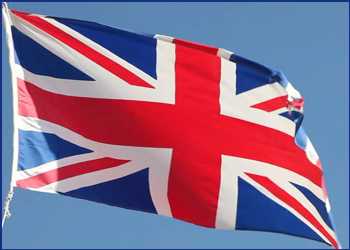The UK economy rebounded at a faster-than-expected pace in October with a strong contribution from the services activity, though economists and observers said the monthly figures mask the underlying recession.
Later this week, the Bank of England is widely expected to shift the gear down on interest rate hikes. Markets have penciled in a 50 bps rate hike for Thursday, after the bank delivered a 75 bps increase in November, which was the biggest in 33 years.
Monthly real gross domestic product expanded 0.5 percent in October, reversing a fall of 0.6 percent in September, the Office for National Statistics reported Monday.
GDP was forecast to gain 0.4 percent after the additional bank holiday for the State Funeral of HM Queen Elizabeth II depressed September GDP.
Chancellor Jeremy Hunt told the broadcaster BBC that the UK economy is likely to get worse before it gets better.
The British Chambers of Commerce, or BCC, said the October growth is unlikely to halt a recession. The industry lobby expects the economy to be in recession for five consecutive quarters.
The Bank of England sees even a longer period of recession. According to the bank’s estimate, the UK will remain in recession throughout next year and the first half of 2024, and to recover only gradually thereafter.
At the November meeting, the BoE had projected the economy to enter a recession in the fourth quarter with the 0.3 percent contraction after an actual 0.2 percent fall in the third quarter.
Last week, the Confederation of British Industry cautioned that the UK will see a lost decade if no action is taken. The CBI observed that the economy might have fallen into a recession in the third quarter itself.
ONS data showed that the service sector was the main driver of the growth in October, growing 0.6 percent, following a 0.8 percent drop in September.
Meanwhile, industrial production remained broadly flat after a growth of 0.2 percent in September. Output was forecast to gain 0.1 percent. The negative increases in three of the four sub-sectors were fully offset by a 0.7 percent rise in manufacturing.
Driven by rises in both new work and repair and maintenance, construction grew 0.8 percent in October, marking the fourth consecutive gain.
GDP fell 0.3 percent in the three months to October, which a tad slower than the expected decline of 0.4 percent.
On a yearly comparison, economic growth improved to 1.5 percent from 1.3 percent in September. The rate was slightly above economists’ forecast of 1.4 percent.
The visible trade deficit narrowed to a 10-month low in October on falling imports, the ONS said in a separate report. The trade gap fell to GBP 14.48 billion in October from GBP 15.66 billion in September.
Exports dropped 0.6 percent from September, while imports decreased 2.6 percent.
The overall trade gap totaled GBP 1.78 billion compared to a GBP 3.13 billion shortfall a month ago.
Source: Read Full Article

